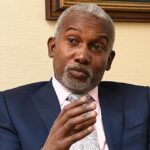The International Criminal Court (ICC) Prosecutor, Fatou Bensouda, issued a statement on December 11, 2020, stating that after about a decade of preliminary investigations into the activities of the Nigerian Army and Boko Haram, there was enough evidence to prove that both forces have committed war crimes.
As a result, the ICC, she said, would initiate an investigation to gather enough evidence which could be used to prosecute perpetrators of the crimes.
In her statement, the prosecutor said, “members of Boko Haram and its splinter groups have committed the following acts constituting crimes against humanity and war crimes: murder; rape, sexual slavery, including forced pregnancy and forced marriage; enslavement; torture; cruel treatment; outrages upon personal dignity; taking of hostages; intentionally directing attacks against the civilian population or against individual civilians not taking direct part in hostilities; intentionally directing attacks against personnel, installations, material, units or vehicles involved in a humanitarian assistance; intentionally directing attacks against buildings dedicated to education and to places of worship and similar institutions; conscripting and enlisting children under the age of fifteen years into armed groups and using them to participate actively in hostilities; persecution on gender and religious grounds; and other inhumane acts.”
On the part of the Nigerian Army, the ICC prosecutor’s statement claimed that “While my Office recognises that the vast majority of criminality within the situation is attributable to non-state actors, we have also found a reasonable basis to believe that members of the Nigerian Security Forces (“NSF”) have committed the following acts constituting crimes against humanity and war crimes: murder, rape, torture, and cruel treatment; enforced disappearance; forcible transfer of population; outrages upon personal dignity; intentionally directing attacks against the civilian population as such and against individual civilians not taking direct part in hostilities; unlawful imprisonment; conscripting and enlisting children under the age of fifteen years into armed forces and using them to participate actively in hostilities; persecution on gender and political grounds; and other inhumane acts.”
Most of the issues raised by the ICC prosecutor are not new to the Nigerian public, as Amnesty International, Human Rights Watch, and the media in Nigeria have raised concerns about them over the years.
However, it is difficult to comprehend how the ICC could engage in an investigation into these atrocities at a time when the war against terrorism is still ongoing, and its end does not seem to be in sight.
For instance, how would ICC investigate non-state actor Boko Haram and its fighters who are very fluid, evasive and mainly fugitives scattered all over the Sahel region?
Secondly, to investigate the Nigerian Army at a time when forces are engaged in warfare may constitute an avoidable distraction.
Boko Haram has continued to mutate from one form into another, and its strategies changing, making it difficult for the army to tame them.
Under this atmosphere, the military needs to focus on this war instead of responding to an investigative panel.
As Nigeria is a signatory to ICC charter, it may be legitimate to investigate its army and officials for war crimes.
However, there are several other countries’ armies in the West who have committed more grievous war crimes in Syria, Afghanistan, Iraq and the rest, but the ICC has not initiated an investigative process against them.
If ICC insists on carrying out this investigation in Nigeria, it would lend credence to the observation that the ICC seems to have been set up in order to investigate African soldiers and leaders only, as they tend to look the other way when Western powers engage in war crimes.
Though we are against crimes against humanity and war crimes by Nigerian soldiers and Boko Haram, we call on the Nigerian authorities, human rights groups and the Judiciary to take on this challenge of carrying out proper investigations and prosecuting those found guilty in line with the Nigerian law, instead of inviting an international body to carry out such a task.
In many Western countries, war crimes are punished by invoking local laws and justice system.
They do not wait for an international body to do the job for them.
Most importantly, we call on our security forces to operate in line with the rules of engagement and avoid war crimes, while at the same time protecting the populace from atrocities by terrorists and bandits.

 Join Daily Trust WhatsApp Community For Quick Access To News and Happenings Around You.
Join Daily Trust WhatsApp Community For Quick Access To News and Happenings Around You.


